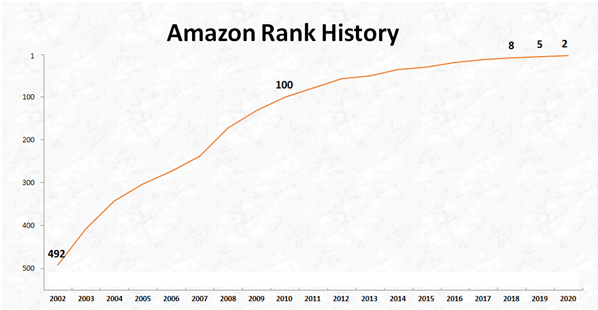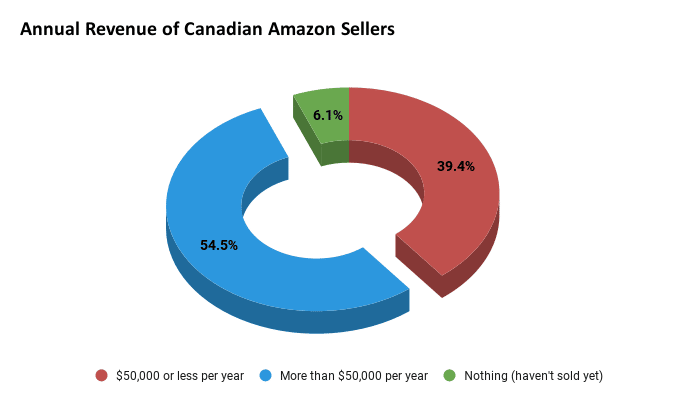
Keeping up with the ever changing rules of Amazon is essential for any seller who wants to make money on the website. There are many other Amazon strategies that can be used to make money on Amazon, in addition to the Amazon fees. This includes optimizing inventory and ways to increase revenue. It is important to get rid off excess inventory as soon possible to ensure your business's longevity. This will not just prevent you from losing your money but will also enable you to get the most out Amazon's time.

The LTSF (Long Term Storage Fee) is a fee that Amazon charges for items that remain in their warehouses longer than a year. Keep in mind that this fee is not a flat rate. It is calculated based upon the cubic foot of the product. This fee is not a high-end cost. Instead, it's an efficient way to increase Amazon's inventory control system.
Amazon will inform your of this fee within the Recommended Removal Report. You will also receive a letter of notification six weeks before the clean-up date. In this letter, Amazon will also provide you with the details of the most recent fee change. This includes the fact that it will now charge separate fees for items that are dangerous or have a long expiration date.
The first time you see an LTSF assessment, it may be a little jarring. The implications of this change may not be obvious to new sellers. This fee increase is very practical. Amazon wants sellers to source higher-quality, more affordable inventory. Amazon does not want slow moving inventory to take over warehouse space. It is best to not stockpile inventory that could cause LTSF assessments.

Amazon's long-term storage fee will not be a one-time charge. It will be assessed twice a year, once per month and once per month. Amazon is charging a higher storage fee during the busiest time of the year at its warehouses, which are October through December. The fee is also increasing to compensate for the general logistics costs of keeping goods in stock for more than a year. The new LTSF costs an average of $150 for 1,000 units. Items less than a year in age will incur a $0.15 minimum monthly fee.
If you're an Amazon seller, you'll have to face the fact that you will need to keep up with the various rules, regulations, and tips that Amazon has to offer. Calculating how much you spend on storage and fulfillment is the best way to reduce your exposure to fees. To increase your cash flow, it's important to plan ahead.
FAQ
What are some other things you should know before buying clothes online
Before buying clothes online, you need to be aware of several things. First, make sure you know your size. While it might seem obvious, many companies don’t provide this information. So you may have to guess.
Also, consider shipping costs. Shipping costs vary depending on what item you have ordered. Make sure you know exactly where the package is going. Some items ship directly through the manufacturer. Others go through a third-party warehouse. This can affect delivery times.
Read carefully reviews. There are many instances of poor experiences. Don't allow someone else's experience to influence your own.
Do I really need to register my credit card number when shopping online?
It is not necessary to register your credit card. However, if you wish to receive special offers and discounts, registering your card may be beneficial. It is recommended that you verify your identity at your bank to ensure your safety.
Can I use gift cards to shop online?
Gift cards can also be accepted in many online stores. You can use these cards to purchase products online.
These points cannot be used to redeem rewards points.
How can I avoid getting scammed while shopping online?
Be vigilant when you shop online. Before you make a purchase online, be sure to read reviews and review the feedback of customers. Also, never send sensitive financial information via email. Instead, you should use secure sites such as PayPal. This way, you can rest assured knowing that your information is safe.
How can I do smart online shopping?
Smart shopping online can help you save money but not sacrifice quality. Here are some tips:
First, shop around. Compare prices and see which store offers the best deal.
Second, you might consider cash back apps like Ebates. They are similar to cashback program found in physical stores. When you shop through their app, you earn points based on the amount you spend. Then, you can redeem those points for gift cards or discounts.
Third, you should look out for promo codes. They can be found at sites such as RetailMeNot.com. Just enter the code during checkout and voila! Your savings will appear automatically.
Lastly, don't forget to check out clearance sections. Sometimes you will find great deals on high-end brands at a discounted price.
How to avoid fraud while using credit cards online?
If you use credit cards online, make sure you check your statements carefully before making purchases. Make sure you only pay bills that you actually owe. Regularly check your bank statement to find out if anything is suspicious. If you notice any unusual charges, call your card issuer immediately. They will normally cancel the transaction and reimburse any money taken out.
Contact your local police department if you believe you have been scammed. You can also report to the Federal Trade Commission.
Statistics
- According to the Federal Trade Commission (FTC), online shopping was the fourth most common fraud category for consumers as of February 2022.5 (thebalance.com)
- Beyond that, you'll be liable for a 25% import tax. (makeuseof.com)
- An approximately 90% increase in price affords Hotel X the opportunity of extreme profits under severe circumstances. (dos.ny.gov)
- Your Online Purchases 79% of Americans purchased goods and services online in 2018, which is expected to exceed 90% in 2023. (meetfabric.com)
External Links
How To
What are safe online shopping skills?
If you want to shop online safely, safe online shopping is essential. It is also important to know how to shop on different websites without being scammed.
Read on if you want to know what to do when buying items online! This article explains all the tricks and tips that make sure you don't fall victim to scams.
-
Do your research. Before you decide to shop online, it's essential to do your homework first. Look for reviews and customer feedback about the company that you are considering buying from. Ask friends for recommendations.
-
Look around. Compare prices between several sellers if you are unsure about the reputation of a particular store. You might also consider price comparison apps such as Amazon Price Checker and Google Shopping. These tools can help you find the best prices from your favorite retailers.
-
Watch out for red flags. You should be alert for any red flags when you browse product pages. Many fake websites use misspelled words or grammatical errors. These fake sites may also sell counterfeit products or display insufficient products.
-
Pop-up windows can be dangerous. Some websites use pop-ups as a way to collect sensitive data such as passwords and credit card numbers. These pop-ups can be closed by pressing "escape" and choosing another browser window.
-
Ask yourself questions. Consider the following questions when you visit a website: Is it trustworthy? Do I get what I need from it? Can I trust its people?
-
Don't give away your personal information. If you initiated the transaction, don't give out financial information, such as your Social Security Number, bank account number, and credit card details, over the phone or by email.
-
Do not click on links in emails. It's easy to click a link in an e-mail and be taken to a phishing site. This type of fraud can only be avoided by opening emails from trusted sources, such as banks.
-
Use strong passwords. Strong passwords should contain letters, numbers, symbols. You should keep your password private and not share it with anyone.
-
Do not download files without permission. Always download files from their source, not from email attachments. Never open attachments received from unknown senders. You should delete any attachments that ask you to install software.
-
Report suspicious activity. Contact your local police department immediately if your identity is suspected to have been stolen. You can also file an FTC complaint.
-
Protect your device. Make sure you have anti-malware protection installed on your computer. It could protect you from hackers gaining access to your private information.
-
Watch out for scammers targeting seniors. Senior citizens are especially susceptible to scammers, as they are less likely understand how to spot fraudulent messages on websites and emails.